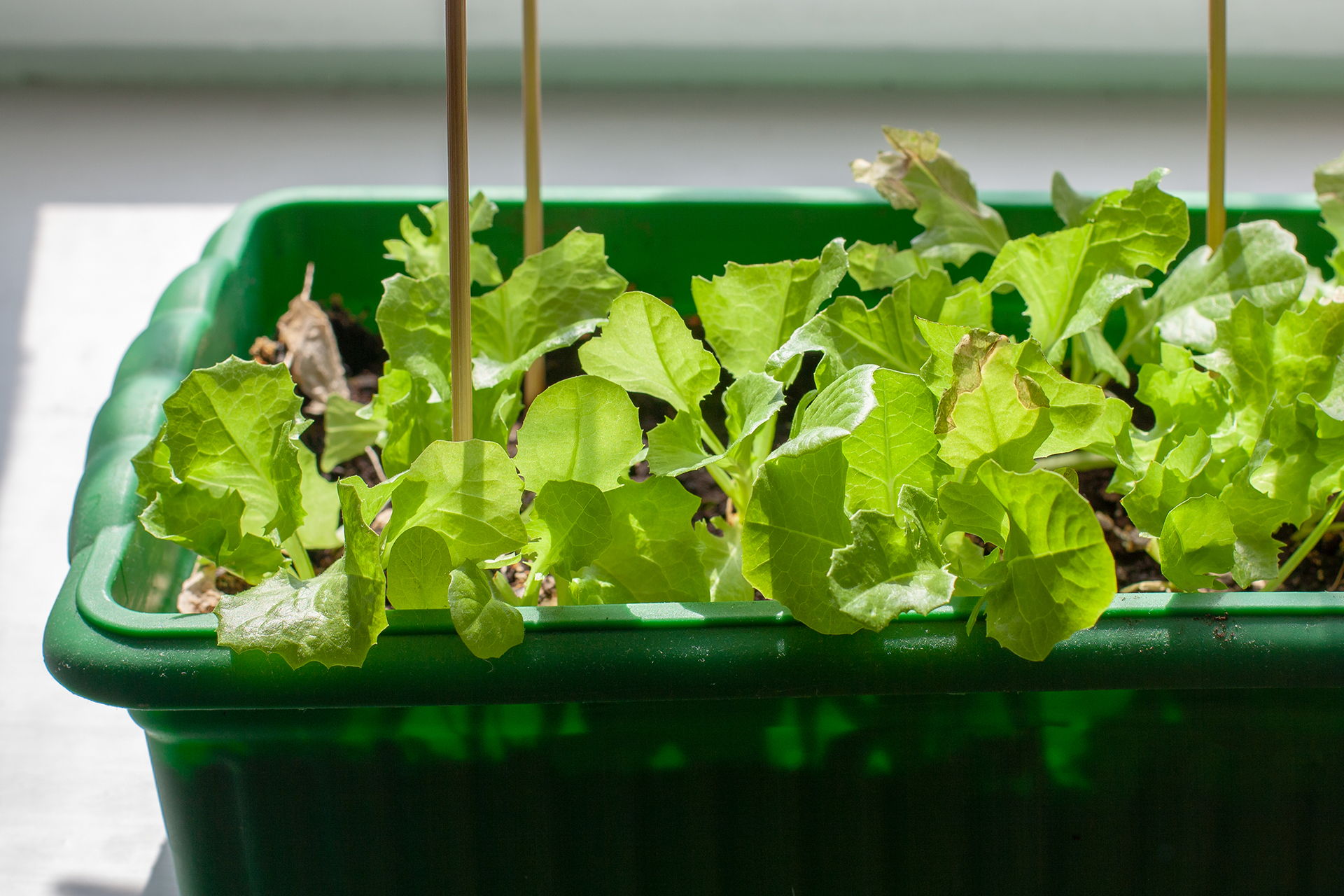How to harvest lettuce – to enjoy fresh and delicious leaves year round
Make the most of growing different varieties by learning how to harvest lettuce


Enjoy home grown salads all year by learning how to harvest lettuce. With so many tempting varieties to try, it makes sense to find out exactly how best to pick them.
Most keen gardeners and home cooks have tried growing lettuce from seed. Easy, quick and rewarding to grow, they are a great way to bring some variety, interest and flavor to your dishes, after all there is far more choice of seed than shop-bought lettuce. They also pack far more flavor into their leaves that shop-bought produce and the sheer range of texture – from crisp and crunchy, to soft and velvety or deeply frilled – adds a different dimension to dishes.
So, whether it’s cropping the whole lettuce head or picking round and taking individual leaves, there are a few simple tips to help you get more from your crop.
‘Harvest as baby leaves or wait to harvest full heads. Lettuce can also be grown as a “cut and come again” crop. Lettuce plants make good companions plants for beets, carrot, celery, cucumbers, radish, spinach, squash, and strawberries,’ say the team at West Coast Seeds.
How to harvest heart-centered lettuce
‘Hearting lettuce will need around 10 weeks to mature, and then will stand for a month or so, depending on weather conditions,’ says Sarah Raven, plant expert and triallist. Perfect for feeding large numbers, you can leave this type of lettuce to form a single large plant with loose outer leaves wrapped around a tight, crisp leaved ‘heart’ or center. Popular varieties include Webb’s Wonderful, Little Gem and Lobjoits Green.
How to harvest loose-leaf lettuce
Taking just six weeks to reach picking stage, loose leaf varieties are a great choice if you fancy a selection of different lettuce leaves.
Just be sure to pluck a few leaves from the base of each plant at a time, to make sure it has enough time to recover and send out more. You should be able to keep a plant going for up to three months in this way.
Design expertise in your inbox – from inspiring decorating ideas and beautiful celebrity homes to practical gardening advice and shopping round-ups.
‘Loose leaf lettuce can be harvested at any time,’ suggest the team at Burpee Seeds. ‘Simply remove the outer leaves and the inner leaves will continue to grow for a continuous harvest. Avoid removing more than 25% of the leaves at a time to keep the plant healthy and productive.’
How to harvest Romaine and Butterhead lettuce
‘This technique is often described as “cut and come again” and is particularly good with the non-hearting varieties of lettuce such as the oak leaf or salad bowl types,’ suggests plant expert Sarah Raven.
‘The key is to have a system of taking just two or three basal leaves from each lettuce in succession, so that they then have a chance to regrow before you come at them again. It works well if you just need to have a few leaves that you want to eat right away for a garnish or in a sandwich.
'If you are creating a big bowl of green salad or catering for more people, a hearting lettuce is a better bet as it keeps longer in the fridge, and some lucky person gets to enjoy the crunch of the central leaves.’
How to harvest lettuce so it keeps growing?
For Butterhead lettuce and Romaine lettuce, dig up the whole plant or cut the head about an inch above the soil. By cutting rather than pulling, the head stays cleaner and it may grow back to give you a second harvest. Crisphead lettuce is harvested when the head is firm. Pull the plant about an inch above the soil to harvest.

Journalist Jill Morgan has spent over 20 years writing and editing gardening, interior and property features. Titles she has worked on include The English Home, House Beautiful, Ideal Home, Houzz and Modern Gardens and she writes regularly for H&G as a Contributing Editor. Whilst she is a dab hand at renovation projects and DIY, she is happiest when out digging in the garden or planning a new border.